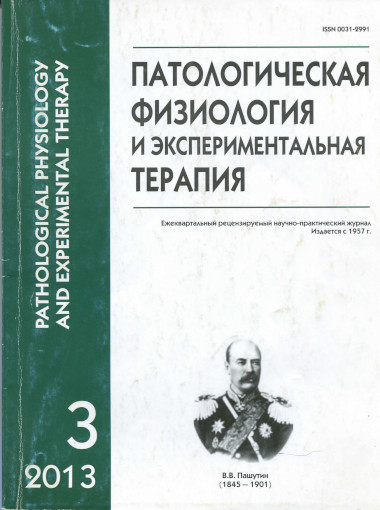Plasma lipid spectrum and survival in rats with heart failure varied by severity under the influence of neurohormonal modulators
Keywords:
chronic heart failure, plasma lipids, survival, β-adrenoblockers, ACE inhibitorsAbstract
In rats with relatively mild chronic heart failure (CHF) there was an increase in plasma LDL levels. In turn, in severe CHF it was revealed a significant decrease in total cholesterol concentration due to LDL levels decline. ACE inhibitors (captopril, enalapril and lisinopril) and the most selective β1-adrenoblockers (metoprolol, nebivolol) had not any significant influence on plasma lipids. Less selective and especially nonselective β-adrenoblockers pindolol and propranolol brought up the atherogenic potential of plasma because of HDL levels reduction in mild CHF whereas in case of severe model — due to the trends toward decrease in HDL concentration and toward increase in LDL levels. Lipophilic ACE-inhibitors and β-adrenoblockers without intrinsic sympathomimetic activity improved survival in rats with mild CHF to the equal extent. On the contrary in severe CHF β-adrenoblockers, especially non-selective, had an advantage over ACE inhibitors on the survival effect.Downloads
Published
2013-08-12
Issue
Section
Original research
How to Cite
[1]
2013. Plasma lipid spectrum and survival in rats with heart failure varied by severity under the influence of neurohormonal modulators. Patologicheskaya Fiziologiya i Eksperimental’naya Terapiya (Pathological physiology and experimental therapy). 57, 3 (Aug. 2013), 51–54.






